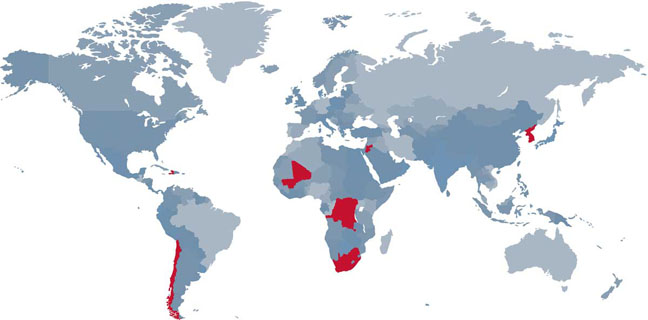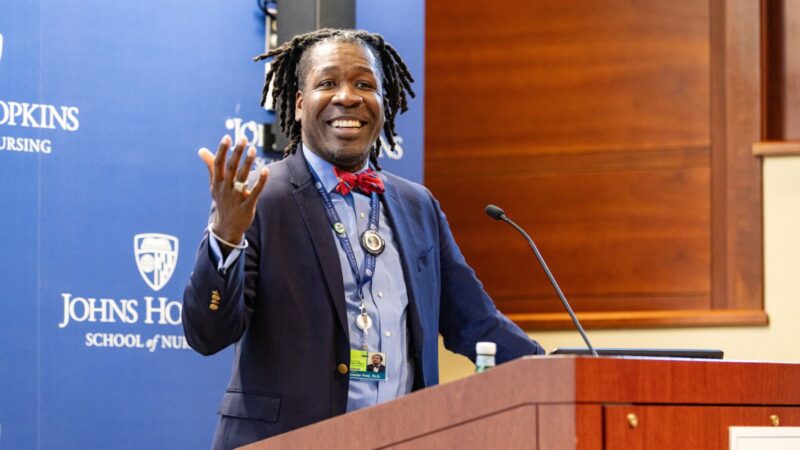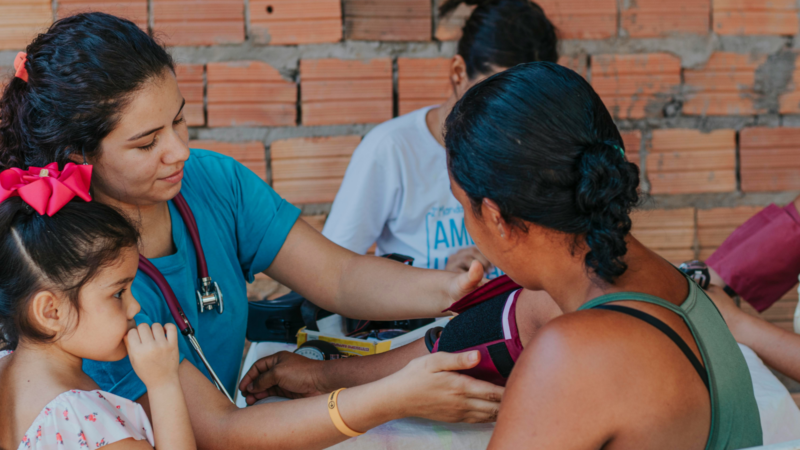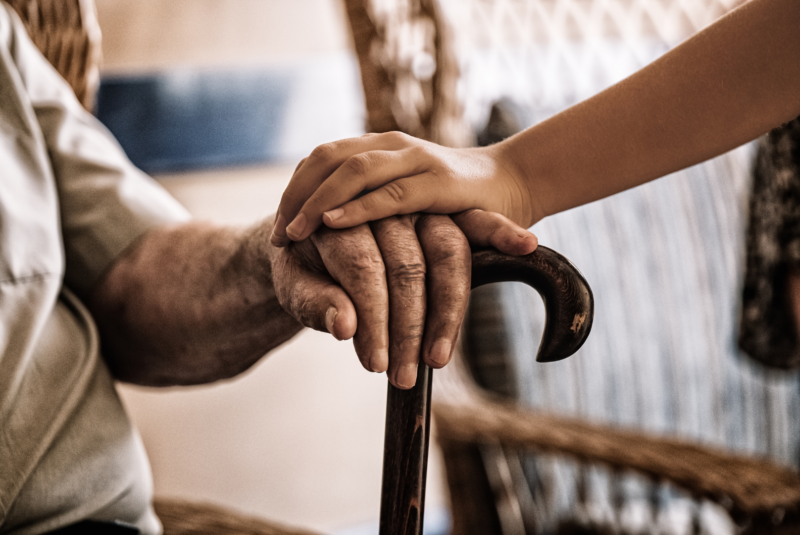Our global research is helping to build new programs, knowledge, hope, and health for people around the world.
The Americas
A team of Hopkins nurses, including faculty members Elizabeth Sloand, PhD, RN, PNP-BC, and Joan Kub, PhD, APHN, BC; doctoral candidates Grace Ho, RN, BSN, and Rachel Klimmek, RN, BSN, OCN, and recent MSN/MPH graduate Anthony Pho, explored nurses experiences caring for Haitian children after the 2010 Haiti earthquake.1
HIV-positive African-American and African-Caribbean women of childbearing age share many of the same issues and concerns for which counseling and education would be beneficial, according to Professor Phyllis Sharps, PhD, RN, CNE, and colleagues.2
Professor Laura Gitlin, PhD, and a colleague present a case study of the healthcare and service challenges and gaps Chile faces when confronted with a population of seniors and exponential economic and technological growth.3
Assistant Professors Nicole Warren, PhD, MPH, CNM, Jason Farley, PhD, MPH, CRNP, and others surveyed nearly 600 nursing faculty across the Americas and identified core global health competencies essential for undergraduate nursing students to have and for nursing programs to teach.4

Middle East
In Jordan, where many women don’t take folic-acid supplements during pregnancy, the rate of infants born with spinal and brain birth defects is higher than average. According to professor Christine Savage, PhD, RN, CARN, and a colleague, intervention should target women of childbearing age least likely to know about or use folic acid: those with limited prenatal care, prior pregnancies, and lower education.5
Asia
Between working and caring for family members, middle-aged Korean women often consider their own health last. When they are diagnosed with diabetes, their physical and emotional health are at increased risk, according to assistant professor Jennifer A. Wenzel, PhD, RN, CCM, and postdoctoral nursing fellow Hyunjeong Park, PhD, RN, ANP.6
Africa
Reducing drug-resistant tuberculosis transmission may be as simple as opening outside windows and closing interior doors in primary health clinics, according to assistant professor Jason Farley, PhD, MPH, CRNP, recent graduate Carrie Tudor, PhD, MPH, RN, and others. Their work in South Africa suggested methods for treatment centers to curb transmission of the disease.7
A mobile health program has successfully improved access to care and reduced posttraumatic stress for sexual violence survivors in Democratic Republic of Congo, says associate professor Nancy Glass, PhD, MPH, RN. Now the challenge is to overcome the fear of disclosure that stops teen violence victims from getting help.8
Assistant professor Nicole Warren, PhD, MPH, CNM, and colleagues uncover the challenges facing community-based midwives—matrones— in rural Mali who fight maternal mortality by bridging traditional village medicine and the broader health care community. The findings may help guide policy and programs to more effectively recruit, train, and support these midwives.9
Sources:
1″Nursing children after a disaster: A qualitative study of nurse volunteers and children after the Haiti earthquake,” Journal for Specialists in Pediatric Nursing, July 2012.
2 “Experiences of HIV-Positive African-American and African-Caribbean Childbearing in Women,” Journal of the National Black Nurses Association, July 2012.
3″The Republic of Chile: An upper middle-income country at the crossroads of economic development and aging,” The Gerontologist, June 2012.
4 “Global health competencies for nurses in the Americas, Journal of Professional Nursing,” July/August 2012
5″Knowledge and practices of folate and multivitamin supplementation among Jordanian pregnant women,” Journal of Research in Nursing, May 2012.
6″Experience of social role strain in Korean women with type 2 diabetes. Journal of Advanced Nursing,” online August 2012.
7 “An infection control audit in 10 primary health-care facilities in the Western Cape Province of South Africa,” International Journal of Infection Control, July 2012.
8 “A Congolese community-based health program for survivors of sexual violence,” Conflict and Health, August 2012.
9 “Matroniya: The Lived Experiences of Rural Auxiliary Midwives in Koutiala Mali,” Health Care for Women International, online May 2012.




